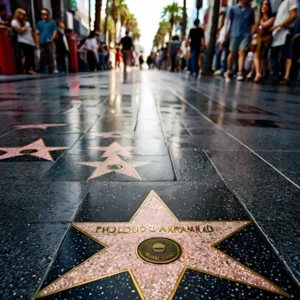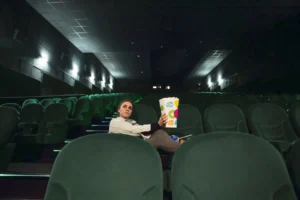Jacob Elordi from teen heartthrob to acclaimed actor. Jacob Elordi’s breakout role as Nate Jacobs in HBO’s groundbreaking it was a cultural pivot point. Playing a volatile high school jock navigating toxic masculinity and emotional repression, Elordi transformed what could have been a flat archetype into a deeply layered, psychologically complex character.
His performance helped reshape expectations for young actors in television drama. Euphoria, created by Sam Levinson, became a sensation not only for its bold visual style but for the raw emotional undercurrents Elordi helped convey. Unlike other teen roles that fade into obscurity
Was Jacob Elordi Always Interested in Dark Roles?
In interviews with GQ and Vanity Fair, Elordi has often expressed a preference for challenging characters. His interest lies not in pleasing audiences but in unsettling them — a philosophy that explains his continued pivot toward unsettling, morally ambiguous roles.
From Kissing Booth to Character Depth: A Deliberate Career Pivot
The Netflix Phenomenon
Before Euphoria, Elordi was best known for The Kissing Booth — a glossy, teen-romance trilogy that made him a favorite among younger audiences. Though the films were global hits on Netflix, Jacob’s discomfort with the fame they brought was palpable.
Rejecting the Pretty Boy Mold
Elordi’s decision to leave behind franchise comfort for roles that demand vulnerability and discomfort speaks volumes. He has said repeatedly that being objectified in those early roles made him want to push harder in the opposite direction — toward scripts that felt honest, confrontational, and artistically risky.
It’s a familiar crossroads in Hollywood: do you continue with commercially safe roles, or do you bet on yourself to take on more demanding work? Jacob Elordi’s answer was clear. And bold.
What Made Fans Take Him Seriously?
The shift didn’t go unnoticed. As he transitioned from Netflix’s golden boy to a rising dramatic force, audiences began reassessing him.
Critics who once dismissed him as just another good-looking guy were now acknowledging the careful choices he was making. Film festival audiences, in particular, began to buzz not just about his looks but about his performances.
A Bold Leap into Auteur Cinema
In 2023, Jacob Elordi took on one of his most daring roles yet in Emerald Fennell’s dark and seductive film Saltburn. Playing Felix Catton, a privileged, charismatic Oxford student caught in a psychological web of desire and manipulation, Elordi turned in a performance that was as magnetic as it was unsettling. This role marked a turning point — not just because of its provocative nature, but because of the artistic credibility it gave him among critics and peers.
Working With Directors Who Matter
Elordi’s name is now being mentioned alongside auteurs like Sofia Coppola, who cast him as Elvis Presley in Priscilla. avoided impersonation in favor of emotional honesty, bringing fresh perspective to a role that easily falls into caricature.
This careful curation of collaborators is no coincidence. In a way, this is how many revered actors — from Joaquin Phoenix to Adam Driver — carved their legacies. Elordi seems to be taking notes.
Is He Hollywood’s New Leading Man?
The question no longer seems to be if Jacob Elordi can act — it’s how far he’s willing to go. With each film, he inches further away from the high school locker room and into the hallowed ground of film festivals and critical shortlists. While some actors struggle to escape the roles that made them famous, Elordi seems to have used them as a launchpad for artistic freedom.
Whether or not those projects materialize, the mere association is telling.
Beyond the Screen: Craft Over Celebrity
Steering Clear of the Tabloid Machine
Despite his growing fame, Jacob Elordi has actively resisted becoming just another Hollywood face in the tabloids. He rarely gives interviews, and when he does, they’re often layered with dry wit and critical distance.
This deliberate avoidance of overexposure is a tactic seen among actors who prioritize longevity over buzz.
Building a Legacy, Not Just a Résumé
Elordi’s film choices reflect a long-game strategy. He’s investing in characters that require transformation, discomfort, and a commitment to narrative over ego. These roles don’t always guarantee box office success — but they attract respect. And in today’s crowded industry, where virality often overshadows talent, that’s a radical choice.
Like them, he channels vulnerability, danger, and desire all at once, without leaning into sentimentality or irony.
Critical Acclaim and the Shifting Public Perception
Earning the Respect of Film Critics
His portrayal of Elvis in Priscilla drew comparisons to classic method actors, with The Guardian praising him for bringing “a quiet tragedy” to the role — a stark contrast to Austin Butler’s grandstanding performance in Elvis (2022).
Festival Presence: From Red Carpets to Relevance
It’s no small feat that Jacob Elordi is now a recurring presence at major film festivals. His selections have appeared at Venice, Toronto International Film Festival, and Telluride — events that prize cinematic craft over commercial appeal.
Is Elordi Becoming a Serious Awards Contender?
Though he hasn’t yet received major nominations from the Academy or BAFTA, discussions among critics suggest it’s only a matter of time. His performances in Saltburn and Priscilla have already landed him on several year-end lists, including IndieWire and Vanity Fair’s “Top Breakout Actors.” These endorsements signal an actor who is no longer being evaluated by his looks or former roles — but by the weight of his screen presence.
If he continues on this path, it’s not unlikely that Elordi will be considered for awards that favor character depth and stylistic boldness over traditional leading-man tropes.
The Power of Selective Storytelling
Choosing the Unconventional Path
Jacob Elordi has shown an instinct for choosing stories that interrogate privilege, power, and identity. Whether he’s dissecting toxic masculinity in Euphoria, the silent entitlement of upper-class youth in Saltburn, or the myth of celebrity in Priscilla, his roles often speak to broader societal anxieties. This isn’t accidental — it’s a reflection of Elordi’s growing voice in shaping the kinds of narratives that define contemporary cinema.
He has become an actor whose presence in a film immediately signals complexity. Audiences no longer expect a romantic lead — they anticipate discomfort, transformation, and an unsettling truth hidden just beneath the surface.
How Does Elordi Compare to His Contemporaries?
Among his generation, few actors have navigated such a radical evolution. While peers like Noah Centineo or Ansel Elgort remained tied to their early franchises, Elordi took a riskier route — one that has placed him closer to the path taken by Robert Pattinson and Kristen Stewart after Twilight. Like them, Elordi walked away from fame-as-product and into the wilderness of auteur cinema, willing to be unlikable, strange, or even grotesque if it served the role.
This courage to distance himself from comfort is what truly sets him apart. In a celebrity-obsessed industry, Jacob Elordi is building a filmography that privileges integrity over image.



